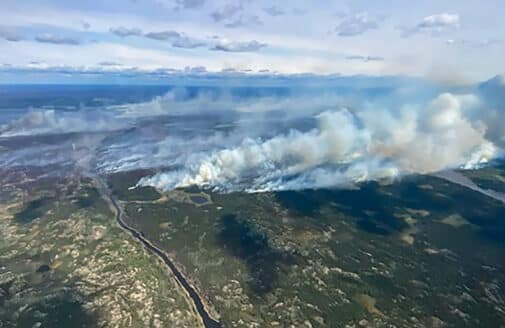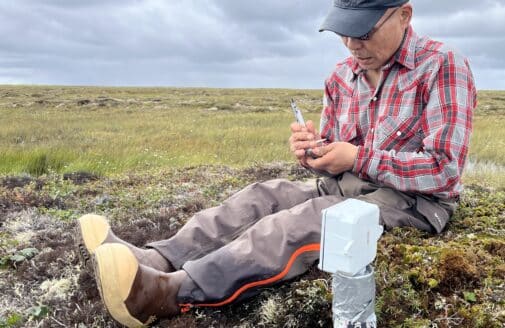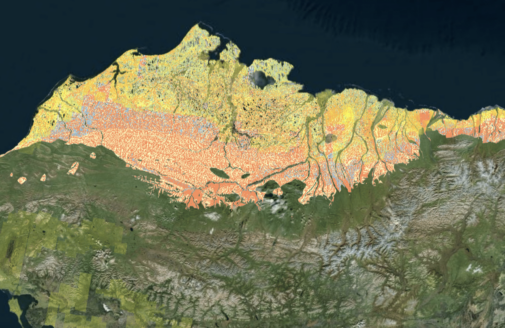Developing best practices for working in Arctic communities
Woodwell Climate Research Assistant Darcy Peter is committed to conducting fieldwork that pushes the bounds of scientific knowledge while also involving and incorporating local Indigenous communities and their knowledge/experiences. With the Arctic Program’s fieldwork postponed due to the coronavirus pandemic, Peter spent part of this summer developing a set of core principles for conducting respectful research that fulfills both of these goals.
The working document comprises twelve principles for working in northern communities, additional resources for self-education, lists of relevant conferences to attend and important governing entities in Alaska and Northern Canada, and decolonization resources, all centered around respect and relationship building. Peter is also developing a sample case study, demonstrating the process of obtaining funding and structuring the necessary steps to conduct meaningful, high-quality, respectful research with local communities.
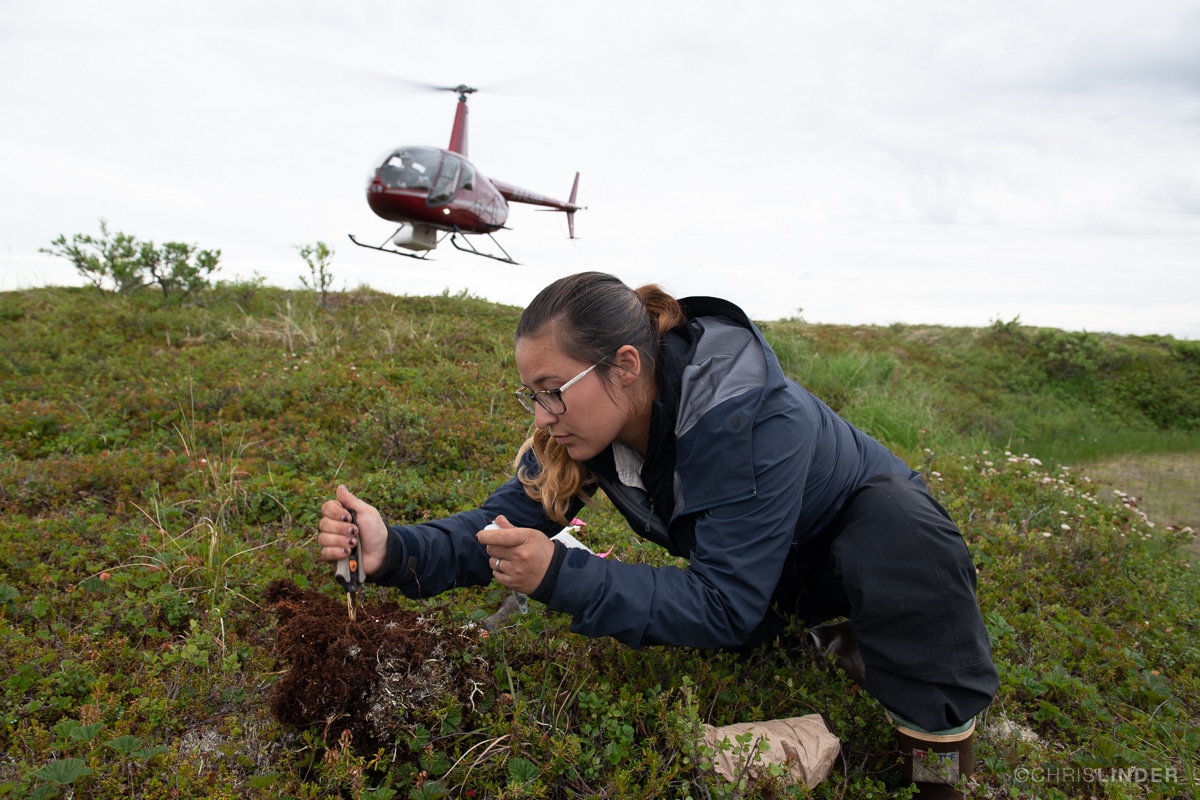
Above: Darcy Peter conducting field work with Polaris Project 2018.
Many scientists, Peter explained, have good intentions. However, most have never been to Northern regions before submitting proposals and applying for funding, and therefore don’t fully understand the ties between the people and place.
To create this document, Peter reached out to her contacts from previous non-profit work in Alaska and Canada, as well as people she has known from her childhood in Beaver, Alaska. She also has received feedback and information from members of Woodwell Climate with expertise in other regions of the globe.
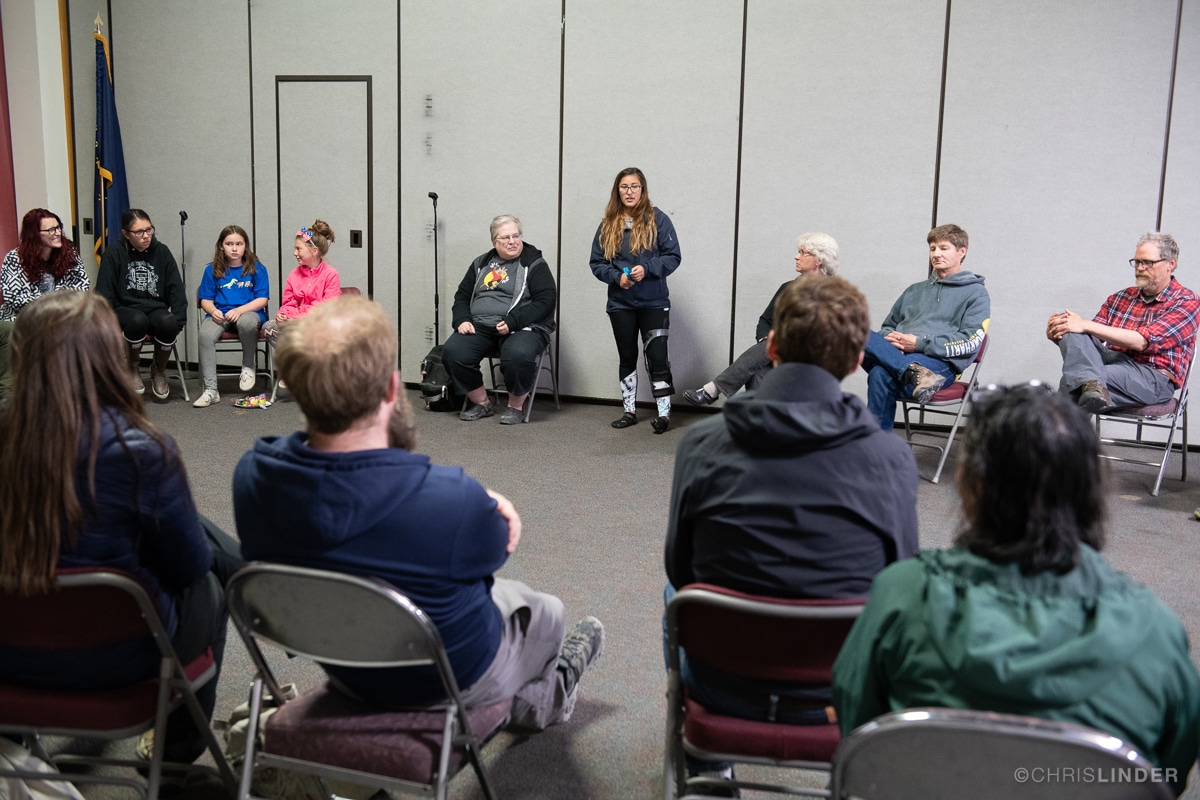
Darcy Peter speaking with a group of scientists and local community members about the Polaris Project and experiences with climate change.
“The scientists at Woodwell Climate all want to prioritize relationship-building going forward,” said Peter. “Dr. Sue Natali has been especially supportive. Everyone wants to learn and better understand each other, which is great.”
The Arctic Program area is developing a committee that will review proposed plans for fieldwork and ensure future research follows the guiding principles Peter developed. This committee will include local community leaders, and funding has been allocated to financially compensate the members’ time.
Woodwell Climate’s guiding principles for working in local northern communities
While working respectfully in northern regions Woodwell Climate researchers should abide by these principles:
- Abide by international, federal, state and local laws and regulations, and follow any existing research protocols while working in U.S. and international northern environments
- Contact and communicate with local city, corporation, tribe, and other relevant entities throughout the entirety of research (including proposal-writing and pre-planning) to allow for transparency and as a form of respect
- Familiarize themselves with local cultures, land ownership/use, historical events, and relevant entities before traveling to northern environments
- Incorporate travel support in your research proposals for attending relevant state/local conferences and workshops to share your research, network with appropriate entities, and build relationships
- Take into account the knowledge and experience of the people, and respect any sharing of such knowledge and experience in the research process. The incorporation of relevant traditional knowledge into all stages of research is highly encouraged
- Provide financial compensation for local people/elders for any time, energy, input, and/or contributions made during the research project
- Give appropriate credit and recognition, including in publications and presentations, to any locals who contributed to your research
- Guarantee confidentiality of any surveys and/or sensitive material
- Communicate on-going and final research objectives, methods, findings and their interpretation to the local community in a language that is easily understood and applicable
- Ensure that the research itself is not exploitative of any traditional and sacred land, its resources, or its inhabitants
- Use Indigenous land acknowledgments at the beginning of presentations and meetings, and in publications as a form of respect and visibility
This list of principles was updated November 2021.




